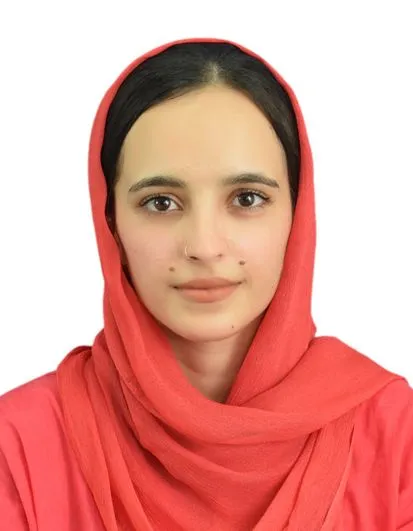Tayyeba Pervaiz Mughal
The Universal Declaration of Human Rights (UDHR), was adopted by the United Nations General Assembly on December 10, 1948. Since then, it has stood as a beacon of hope, promising a world where people enjoy their inherent dignity, fundamental freedom and protection from violence. The declaration is an internationally accepted document as various states have adopted the provisions within their own constitutional frameworks. It restricts them from abuse of any of the fundamental human rights.
The underlying principles of the declaration, which included freedom, justice, equality, and dignity, were meant to open the door to a more just and equitable society. However, after 75 years, the reality remains far from the ideals enshrined in the declaration. The world is still plagued by conflicts often characterized by gross human rights violations that are not merely the byproduct of the war but central to the very nature of the conflict. The prevalence of ethnic cleansing, apartheid, state-sponsored terrorism and illegal occupation of territories continue to add to human suffering. This grim reality questions the very effectiveness of UDHR, and commitment of the international community to upholding its principles.
As the world commemorates the 75th anniversary of UDHR, the plight of innocent people of Indian Illegally Occupied Jammu and Kashmir (IIOJK) remains a glaring stain on the conscience of humanity. Amidst the backdrop of worldwide apathy, the people of Kashmir find themselves voiceless and forgotten. The illegal occupation of Kashmir by the Indian government for more than seven decades infringes multiple articles of the 30 fundamental human rights stipulated in UDHR. These thirty articles provide the fundamental rights of identity, association, survival, movement, freedom of speech, sense of security, equality before the law and protection of law. For more than seven decades, the Indian government has constantly violated UDHR with impunity.
The United Nations in its 2018 report, highlighted that the impunity for human rights violations and provision of justice are the key challenges in IIOJK. The draconian laws in the state, such as the Jammu and Kashmir Public Safety Acts (1978) empowering state government to detain a person without trial for two years, the Armed Forces Special Power Act (1990), and many more have created structures that have obstructed the normal course of law and hampered accountability.
The article 3 of UDHR provides the right to live in freedom and safety to every individual in the world, but the Indian occupation forces in IIOJK continue to kill the innocent civilians unlawfully. According to UN Report on Kashmir in 2019, Indian occupation forces killed 305 civilians between July 2016 to April 2019. Additionally, it stated that they are targeting children and women with chemical weapons and pellet-firing shotguns. The weapons used against the unarmed civilians are extremelydangerous, and their use is the clear violation of article 3 of UDHR.
The systematic torture, including 11,170 reported cases of rape, is a clear violation of Article 5 of UDHR, which proclaim the right to be free from torture and inhumane treatment. The imposition of the curfew after the revocation of Articles 370 and 35A violates Article 13, which proclaims the right to freedom of movement. Moreover, the enforced conversion of Kashmiri residents and destruction of mosques, communication blackouts and restrictions on the rights of assembly and association is a clear violation of Articles 18, 19, 20 and 21 UDHR, posing a direct threat to the democratic system in the self-proclaimed largest democracy of the world.
While the Indian government turns blind eye to longstanding and pervasive human rights violations in Kashmir, Akar Patel, the executive director of Amnesty International India, emphasizes the need to end the impunity with which these human rights violations have been systematically disregarded. He insisted on creating an inclusive and safe society rather than perpetuating a false notion of normalcy. Patel stated that;
“It is not too late for the Government of India to take meaningful steps towards creating an inclusive and safe society instead of peddling a false notion of normalcy in the region and encouraging the perpetration of more abuses. Until then, the Indian government’s historical failure to protect the people of Kashmir will keep feeding into this never-ending cycle of abuses and impunity.”
Some other prominent members of the Indian community also raised their voices against the increased violence on Kashmiris by their state government. The founder of the Center for Human Rights and Global Justice, Gita Sahgal, emphasized that;
“The Indian government has a long history of human rights abuses in Kashmir. These abuses must stop. The people of Kashmir deserve to live in peace and security.”
By and large there has been a deafening silence from the international community on the issue, which raises questions about the selectivity of the human rights advocacy. While the world reacts swiftly to the violations in some regions, such as in the case of Russia and Ukraine, the sufferings of Kashmiris seem to fall on deaf ears. It points to the failure of the international system to uphold its commitment to human rights.
However, this 75th anniversary of UDHR must serve as a reminder for the Indian government and international community that human rights are not mere slogans but a shared responsibility. It is a moral obligation of the champions of human rights to rise above their political consideration and address the grievances of the people in Kashmir. We can only bridge the gap between promises and harsh reality of human rights through collective action, rigorous analysis, honest retrospection and a renewed commitment to UDHR. There is a dire need to move beyond mere lip service, ensuring that this 75th anniversary marks not just a commemoration of the past but for a future where human rights are lived realities for all.
[Writer is pursuing MPhil in Peace and conflict studies and works as research associate at Kashmir Institute of International Relations.]










